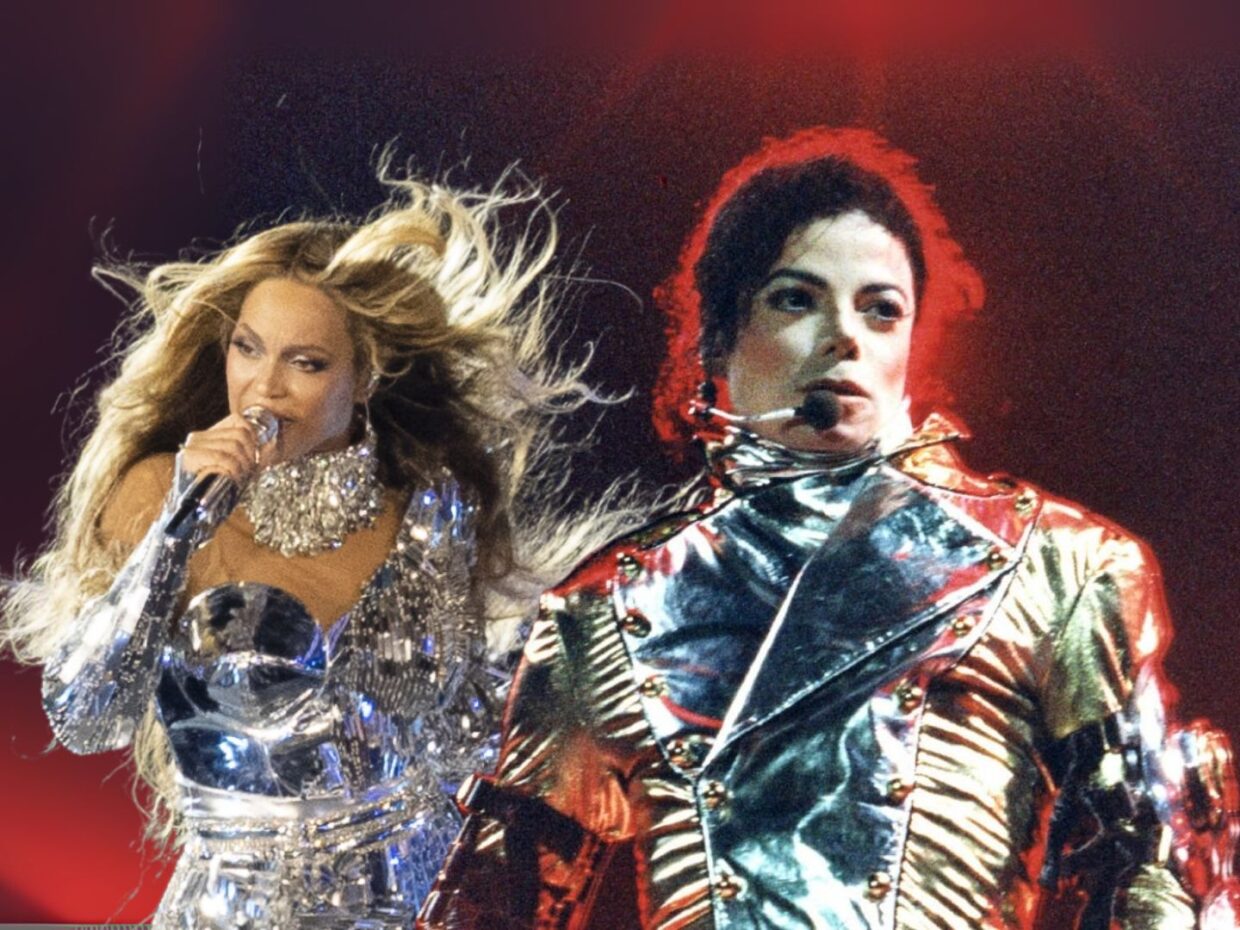In the wake of Beyoncé’s history-making Cowboy Carter tour finale, TikTok has ignited a fiery debate that shows no signs of slowing down: who reigns supreme—Beyoncé or Michael Jackson?
What started as admiration for her record-breaking country crossover has spiraled into a full-blown generational culture war, with users dissecting vocals, performances, chart stats and cultural impact through split-screen videos and rapid-fire threads. For some, Beyoncé’s genre-defying artistry and 21st-century dominance signal the passing of the crown. For others, Michael Jackson’s legacy as the King of Pop remains untouchable.
But beyond the Stan wars and viral edits lies a deeper question: are we witnessing the evolution of pop royalty, or are we too eager to compare two icons shaped by entirely different eras? To me, these two artists are anomalies—forces that cannot be replicated by any means.
READ ALSO: Beyoncé Rewrites Country Music History With Cowboy Carter Tour
For Beyoncé’s supporters (like myself), the argument is compelling: few artists in history have matched her level of achievement, innovation, and cultural impact. She has redefined the boundaries of pop and R&B, and more recently, made a bold and successful foray into country music with Cowboy Carter—a move that not only challenged genre norms but also forced long-standing institutions to evolve, such as artists choosing to drop their music on Fridays instead of Tuesdays.
Her surprise self-titled visual album in 2013 revolutionized how music is released and consumed, sparking a wave of unannounced digital drops and prompting the Recording Academy to reconsider genre classifications in response to her boundary-blending work.
From becoming the first artist in history to have multiple tours gross over $400 million, to maintaining full creative control over her brand and vision, Beyoncé represents a new blueprint for superstardom in the digital age—rooted in strategy, excellence, and artistic autonomy.
While many of her peers have entered their legacy-artist eras, leaning on nostalgia to remain relevant, Beyoncé continues to evolve. She challenges herself and the industry with every project, staying not only relevant but dominant—like a true champion in modern music.
On the other side, Michael Jackson remains an unshakable icon whose influence continues to shape the foundation of modern music and pop culture. Often referred to as the King of Pop, Jackson didn’t just participate in the music industry—he transformed it. Long before the age of viral content and algorithm-driven fame, Jackson captivated the globe through pure talent, innovation and spectacle.
His 1982 album Thriller remains the best-selling album of all time—a cultural juggernaut that fused pop, R&B, and rock in a way that shattered racial and genre barriers. With Bad and Dangerous, he continued to redefine what a global superstar looked and sounded like, crafting high-concept visuals, choreographed performances and cinematic music videos that became industry benchmarks.
For many, Michael Jackson is not just an artist—he’s the prototype. A singular force whose contributions laid the foundation upon which today’s stars, including Beyoncé herself, have built their careers.
While the debate is entertaining, comparing Beyoncé to Michael Jackson is ultimately like comparing apples to oranges—both extraordinary, but grown under completely different conditions. Michael Jackson rose to fame in an analog era, where superstardom was measured by physical album sales, limited TV appearances and the ability to captivate the world without the immediacy of social media.
Beyoncé, on the other hand, has mastered the digital age, commanding global attention with surprise drops, cinematic visuals, and viral moments in a landscape that demands constant reinvention.
Yet despite their different contexts, I believe Beyoncé and Michael Jackson are the same kind of force: singular, genre-defining artists who shifted the cultural tide, broke barriers, and set new standards for excellence. Still, it’s worth noting that some of the resistance to placing Beyoncé in the same conversation as Jackson is rooted in misogynoir, while artists like Chris Brown have frequently and casually been compared to Jackson based on dance moves or vocal inflection. People tend to ignore that Beyoncé’s decades-long dominance, creative autonomy, and cultural impact are often dismissed or downplayed.
In all truthfulness, they are both anomalies—artists who don’t just reflect the times but reshape them. And their legacies, while different in form, are deeply aligned in impact. To be put in the same category as someone you admired, respected and learned from? That must mean she did something right.
